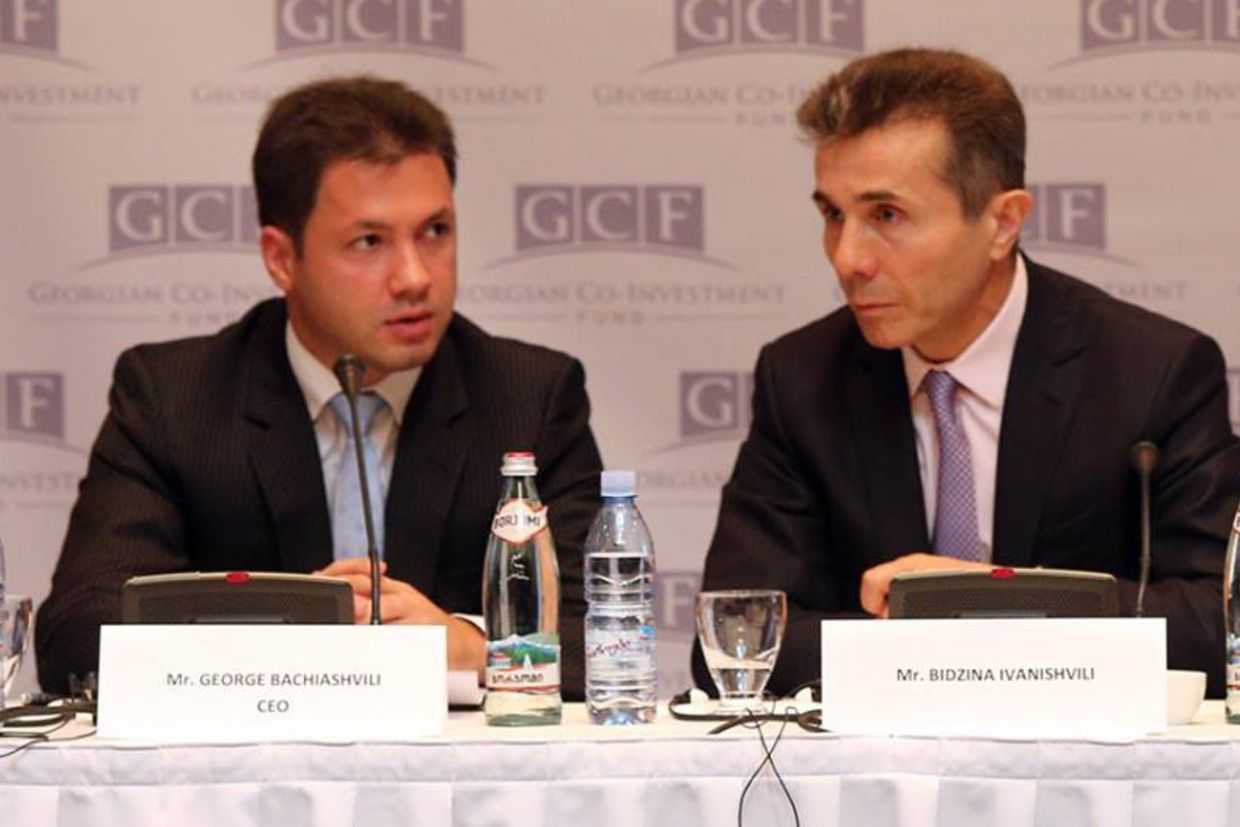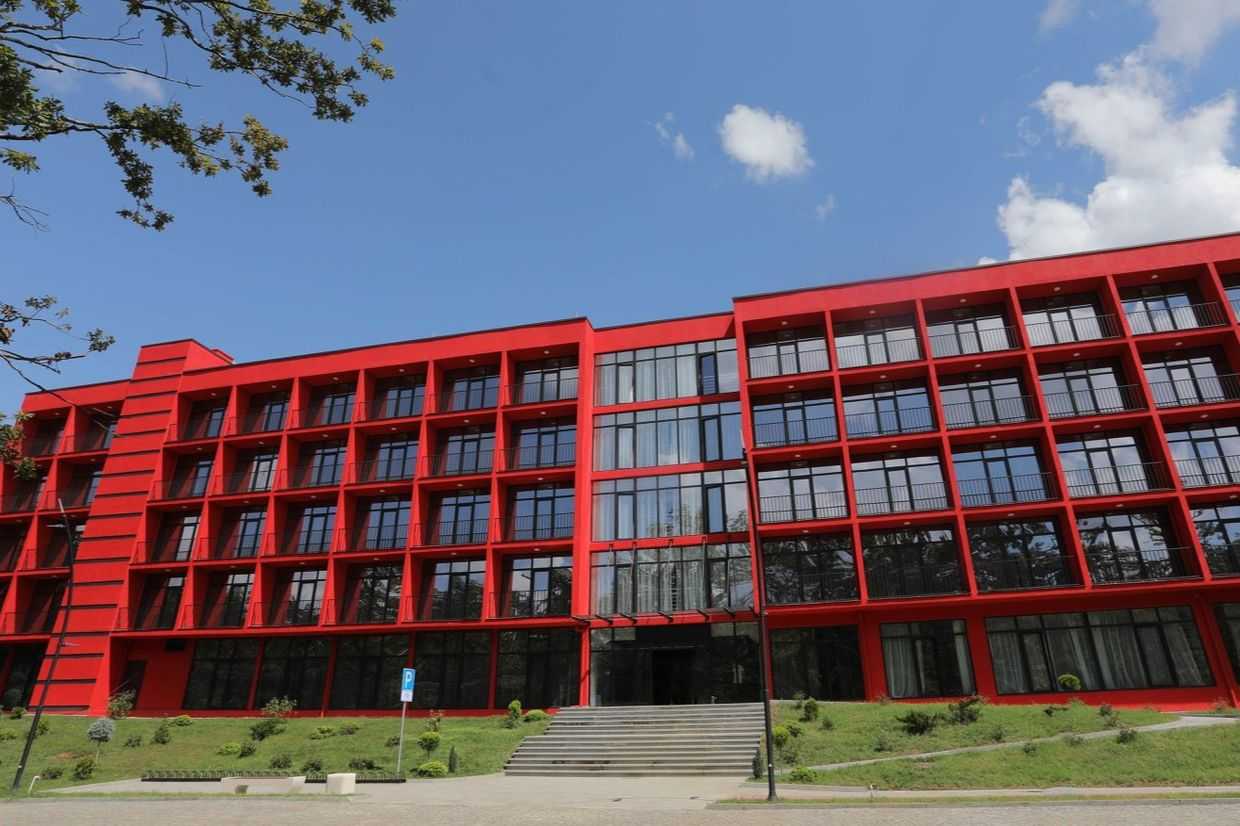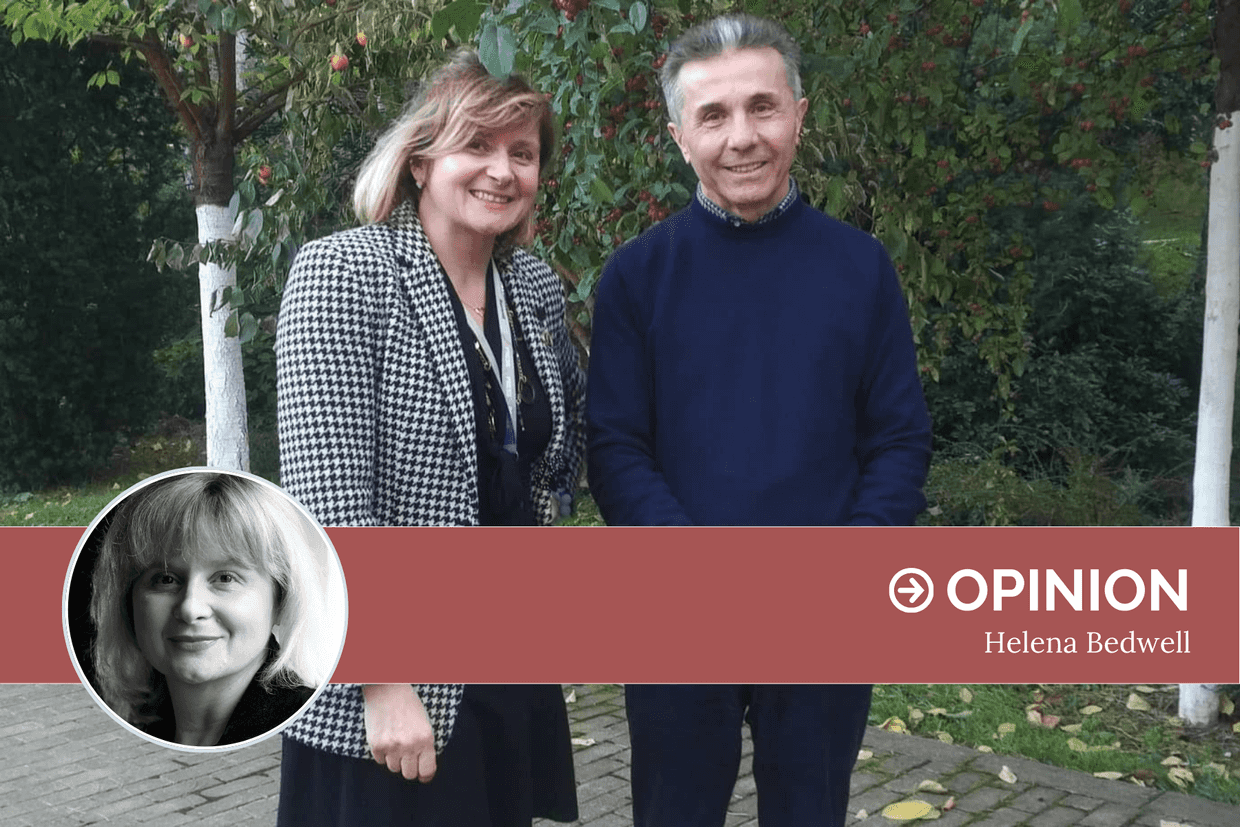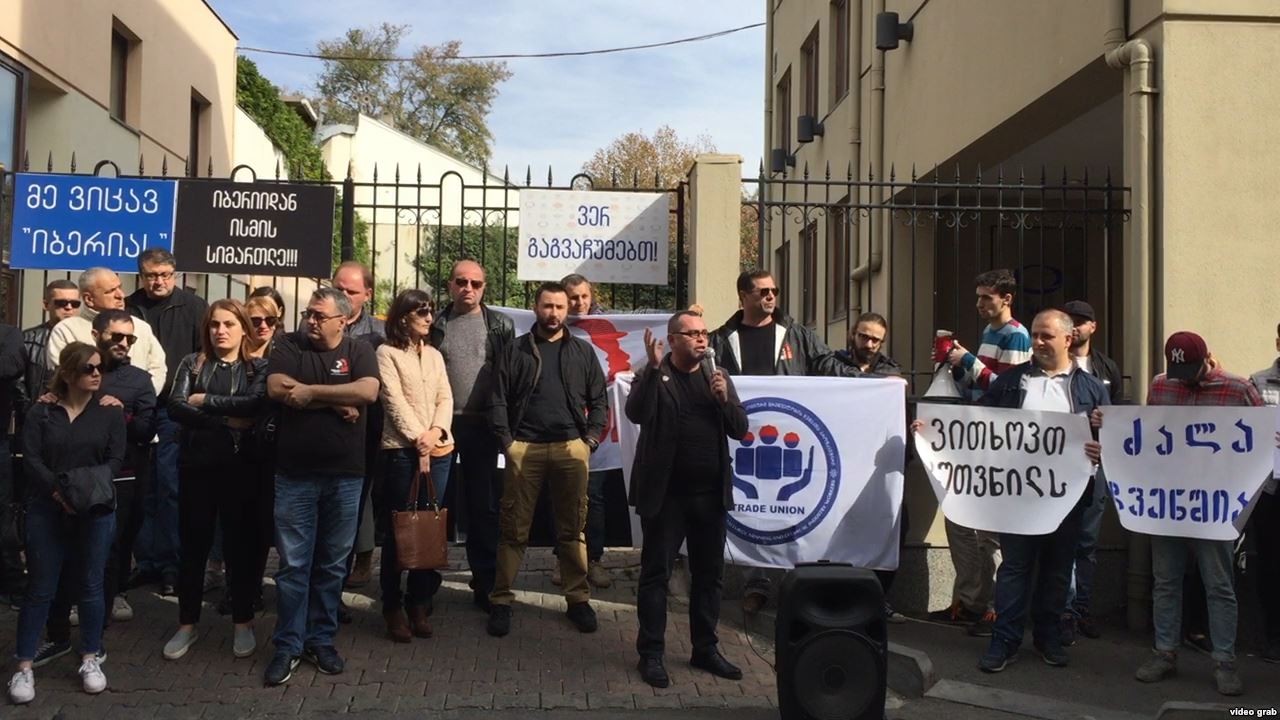
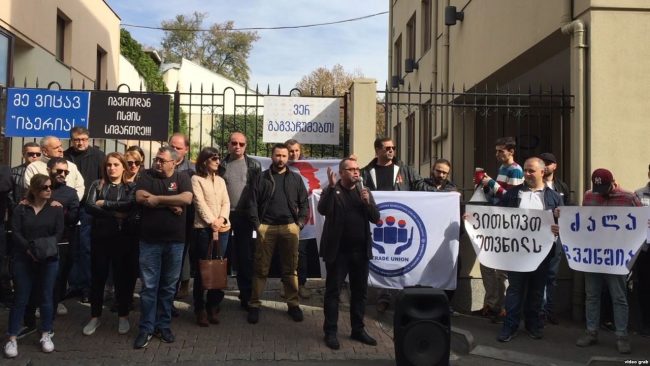
Former employees of Iberia TV have openly criticised the channel’s owners, Zaza Okuashvili, a Russian-British citizen, and his wife, Georgian MP Nato Chkheidze, claiming they were used in a financial spat with the government. They have demanded to be paid unpaid salaries and compensation after mass layoffs at the station.
‘We fought and eventually ended up out in the street, and no one even said thank you’, the former head of the Iberia TV’s news service Vakho Kuzmiashvili complained during a press conference on 26 November.
In February, Khumziashvili, who also anchored the channel’s ‘Free Space’ talk show, accused the government of putting financial pressure on Omega Group to attack the channel’s ‘free editorial policy’.
Omega Group’s holdings include Iberia TV as well as cigarette producer Omega Group Tobacco, car dealer Omega Motors, and others.
On 10 September, journalists from Iberia protested outside the government chancellery building against government pressure.
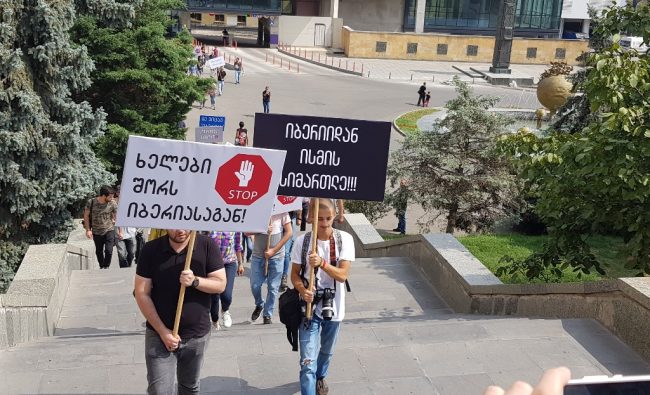
Former Iberia news anchor Tamar Urushadze told Palitra News that some journalists were forced to attend the protest in order to receive a part of their salaries.
Several months later, on 26 November, Khuzmishvili said he had been keeping silent for about a month and a half but that Iberia’s former employees remain ‘in a grave situation’, having families to feed and loans to pay.
Journalists mount legal challenges
Former Iberia reporter Tamar Sharikadze was in her seventh month of pregnancy and preparing to go on maternity leave when she was fired along with 79 colleagues on 22 October.
She is among 27 former Iberia employees, including reporters and camera operators, being represented by rights group the Georgian Young Lawyers’ Association (GYLA).
Their lawyer, Mariam Gogosashvili, told OC Media that the journalists were simultaneously fired and their employer did not pay them for their last week of work.
According to Gogosashvili, the TV company is obliged under Georgia’s labour code to pay them two months pay within a month of firing them without prior warning, something Iberia have yet to clarify if they will do.
Khuzmiashvili criticised Iberia TV’s founder Nato Chkheidze last week, who, according to him, had told journalists to ask the government for their wages.
‘Journalists should not have to ask for their salaries from politicians, but from their employer’, Khuzmiashvili stated.
‘I myself also plan to sue [Okuashvili] separately for violating personal information laws by breaching my salary confidentiality in the open air talking to TV Pirveli on 26 November’, Khuzmiashvili told OC Media.
Another group of former Iberia journalists are being represented by the Georgian Trade Union Confederation (GTUC).
GTUC lawyer Tamar Surmava told OC Media that they had studied the case and plan to file a grievance on behalf of 39 former employees demanding compensation for their unexpected termination, and also reimbursement of lost salaries.
According to the GTUC, they’re currently in the initial stages of legal proceedings and expect to hear Iberia’s response once the company submits a reply to the journalists’ claim by mid-December.
Surmava confirmed that Iberia cited ‘financial problems’ as the reason behind the layoffs.
Iberia TV did not respond to a request for comment.
As scandal unfolded journalists faced uncertainty
While Iberia’s news staff accused the government of pressuring the media, the channel’s owner, Omega Group holdings, claimed they had been a victim of dumping, having suffered a $100 million loss after multinational company British American Tobacco sold products on the market at below cost. They claimed the loss endangered all their companies, including TV Iberia.
In early September, authorities seized the company’s assets, arguing Omega Group owed ₾50 million ($19 million) in unpaid taxes and had failed to meet deadlines after being given a payment plan.
Several days later, on 10 September, Iberia and later the opposition-leaning TV channel Rustavi 2, started airing a series of audio recordings implicating former and then-current senior officials in extortion of expensive cars and money from Omega Group.
According to the tapes, the government’s middlemen also demanded the business give up Iberia in exchange for writing off the company’s tax debts.
Okuashvili claimed Bidzina Ivanishvili, the former Georgian Prime Minister and the current chair of the ruling Georgian Dream party, was behind the racketeering, and that he demanded ₾4 million ($1.8 million) from him in an April 2016 meeting.
The government rebuffed Okuashvili’s claims and insisted protests by journalists in early September had nothing to do with media freedom, and that Omega Group’s financial problems were to blame.
In mid-October, amidst the ongoing scandal around accusations, the government extorted money from Omega Group’s owner, camera operators and editors of Iberia’s news division went on strike, saying Iberia owed them pay.
[Understand Georgia’s tapes scandals: Analysis | Georgia’s tapes scandals suggest something is rotten at the top of Georgian politics]
On 16 October, less than two weeks before the first round of presidential elections, Iberia cancelled their news programmes and political talk shows, instead airing a screen saying ‘the government closed Iberia!!!’.
Several days later, Iberia fired journalists from their news division, citing financial problems ‘caused by the government’.
Speaking to Palitra News on 25 November, former Iberia journalist Urushadze claimed they still had enough resources to continue their news broadcasting in spite of the strike, but the company decided to halt them anyway.
‘They did not want the company to continue to work’, Urushadze said.
Speaking to the media later that day, Okuashvili accused the State Security Service of being involved in the journalists’ strike.



